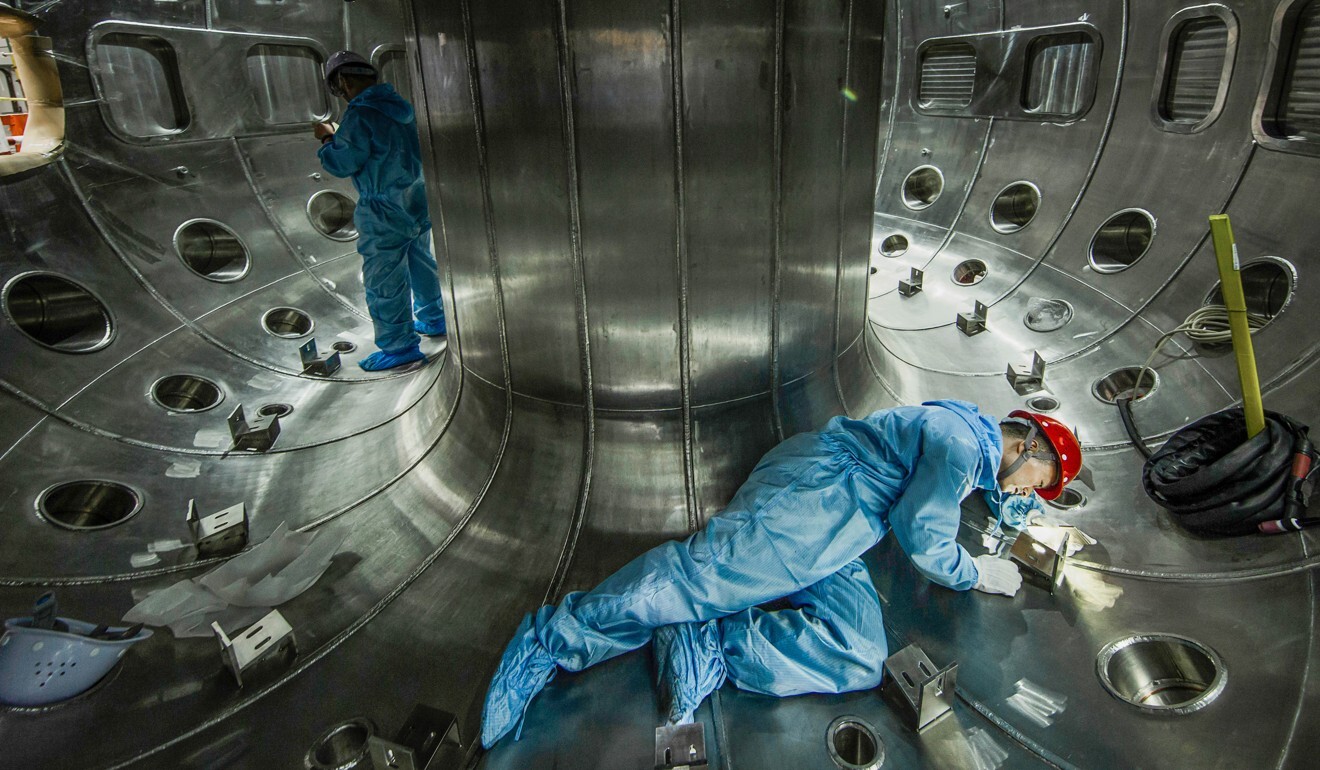
US-China tech war: Beijing’s top policy official lays out strategy to address Washington’s ‘stranglehold’ over China
- It was Beijing’s ‘inevitable choice’ to seek a greater level of tech independence when the US was imposing restrictions on China, said policy chief Jiang Jinquan
- The article, published just days after US President Joe Biden took office, sheds light on the Chinese leadership’s thinking about the country’s tech future
A high-ranking official within the inner circle of the ruling Chinese Communist Party has said China must embrace a “whole country” approach and mobilise the nation’s private businesses to reduce reliance on foreign technologies amid ongoing US sanctions that restrict China’s access to advanced equipment and devices.
Jiang Jinquan, the newly promoted head of the Central Policy Research Office, which studies and drafts national policies for China’s top leadership, wrote in an article in the official media Study Times on Monday that it was Beijing’s “inevitable choice” to seek a greater level of technology independence when the US was imposing technology restrictions on China.
The article was Jiang’s interpretation of a keynote speech made by President Xi Jinping to China’s provincial level leaders earlier this month. The full transcript of Xi’s speech has not been published, but according to a report by the official Xinhua news agency, Xi told the country’s rising political stars that the nation has entered a “new development stage” where time and trends are in Beijing’s favour in a rapidly changing world.
Xi said that a hallmark of this “new development pattern” was a higher level of self-sufficiency and self-empowerment and that China must “focus more on ingenious innovation”.
Jiang wrote that China’s technology sector still has many short comings and weak links, making the country vulnerable to external sanctions.
Former Huawei budget brand Honor to launch new 5G smartphone
“In the semiconductor industry, China’s production capacity accounted for only 7 per cent of the global total but China’s demand accounted for 33 per cent of global total. As a result, China has to rely on imports to meet over 80 per cent of domestic demand for semiconductor products,” Jiang wrote.
“At present, the United States is imposing a technology blockade over our country to significantly disrupt our external technology exchanges and cooperation, and it’s an inevitable choice [for China] to seek a self-dependent and self-empowerment strategy in the technology sector,” he added.
The goal of China’s strategy is to “develop autonomous capabilities in key industrial areas … to reduce reliance on foreign technologies, equipment and key components, especially those from Western countries,” Jiang continued.
Jiang’s article, published just days after US President Joe Biden took office, sheds light on the Chinese leadership’s strategic thinking about the country’s technology future at a time when the world’s two big powers are engaged in a strategic geopolitical and technology rivalry.

The US has used its clout in the global semiconductor industry to order global foundries including Semiconductor Manufacturing International Corporation (SMIC) to stop producing chips for Huawei Technologies Co, China’s top smartphone and telecommunications equipment maker, forcing Beijing to boost its self-reliance.
But it remains an open question whether Beijing’s top-down approach of mobilising the country’s available resources to seek progress in a few targeted technology areas can help the country gain a technological advantage over the US. According to Jiang, China relies on imports for over half of its “high-end equipment, software, and key components”.
Jiang said China must pool all its available resources to seek breakthroughs in “strategic and fundamental key science and technology projects” so that it can avoid “being strangled by others at the neck”, a phrase that Xi has used to describe China’s dependence on foreign key products.
China will also establish “national teams” to strengthen scientific research and innovation. For key application areas, China should rely on commercial enterprises and encourage the private sector to invest in research and development, with the Chinese government rewarding them through “state purchase of research results”, Jiang wrote.
Separately, China’s Ministry of Industry and Information Technology (MIIT) said at a press conference on Tuesday that it will support domestic and foreign enterprises to increase investment in China’s semiconductor industry and continue to improve the production capacity of integrated circuits.

